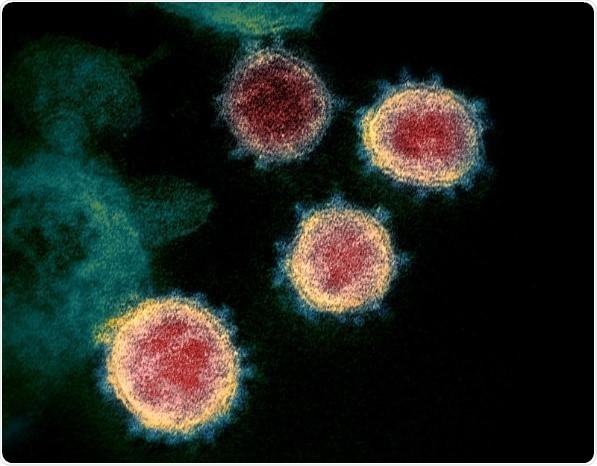According to a new study, a detailed analysis of antibody responses in patients affected by coronavirus disease 2019 (COVID-19) could help develop an effective vaccine.

Image Credit: National Institute of Allergy and Infectious Diseases, 2020.
The study was published in PLOS Pathogens—an open-access journal—on September 10th, 2020, by Chao Wu and Rui Huang from Nanjing University Medical School and collaborators.
The latest outcomes prove that the neutralizing activity of antibodies from patients who recovered from COVID-19 is generally not powerful and decreases sharply within a month of hospital discharge.
The entire world is facing an unparalleled challenge with economies and communities affected by the rising COVID-19 pandemic. At present, no effective drugs or vaccine have been approved to prevent or treat the disease.
A better interpretation of antibody responses against the SARS-CoV-2 virus, which is responsible for causing the COVID-19 infection, will offer underlying information for designing effective therapies and a preventive vaccine.
In the new research work, scientists constantly tracked SARS-CoV-2-specific antibody reactions in 7 severe COVID-19 and 19 non-severe patients for a period of seven weeks from the onset of disease.
A majority of the patients produced antibody responses against the SARS-CoV-2 virus, such as the viral nucleoprotein and three portions of the spike protein—the ectodomain, S1 protein, and receptor-binding domain.
While 80.7% of recovered COVID-19 patients had different levels of antibody neutralization activity against the SARS-CoV-2 virus, only a small number of patients elicited a strong level of neutralization activity.
This finding emphasizes the significance of meticulously choosing blood samples from the recovered COVID-19 patients using antibody neutralization assays before administrating them into other COVID-19 patients.
Three to four weeks following hospital discharge, the neutralizing activity of antibodies from the recovered patients decreased considerably, implying that the recovered COVID-19 patients could be probably re-infected with the SARS-CoV-2 virus.
Additionally, patients with severe COVID-19 exhibited a huge amount of non-neutralizing antibodies, which may contribute to the antibody-dependent improvement of infection. According to the study’s authors, the new study offers significant insights for antibody-based intervention, vaccine design, and serological testing.
Source:
Journal reference:
Chen, Y., et al. (2020) A comprehensive, longitudinal analysis of humoral responses specific to four recombinant antigens of SARS-CoV-2 in severe and non-severe COVID-19 patients. PLOS Pathogens. doi.org/10.1371/journal.ppat.